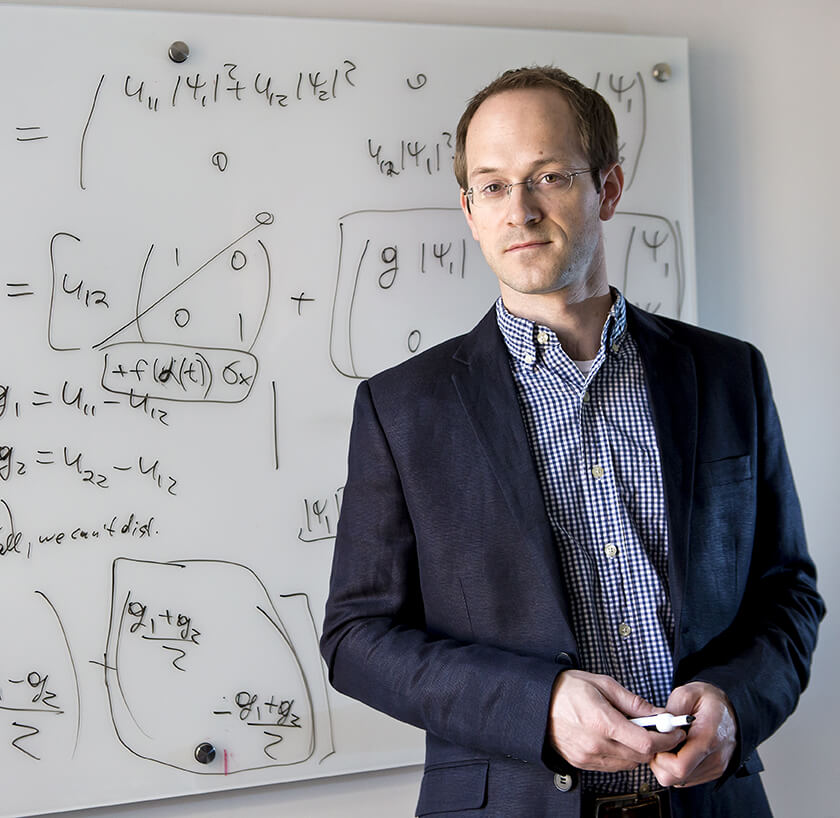- September 30, 2019
- By Chris Carroll
Last week, a leaked paper from Google sent the tech and computer science worlds into a tizzy with news that the web search colossus had made an earth-shaking advance in quantum computing.
Expected to revolutionize everything from computer security to drug development and artificial intelligence, quantum computers are still too rudimentary to be very useful. But now, as the story went, Google researchers had—in what would be a historical first—succeeded in beating a regular computer at a task, a concept known as “quantum supremacy.” In this case, a quantum machine took just over three minutes to complete a computation that would have consumed a so-called “classical” computer for about 10,000 years.
The leaked document was later taken down from a website, leaving journalists and the twitterverse to scratch their heads. Maryland Today spoke to Andrew Childs, a professor of computer science and co-director of the Joint Center for Quantum Information and Computer Science (QuICS), about what it all means.
Do we know if this achievement was real?
I can't conclude that yet. As far as I'm aware, there's not a paper that's gone through peer review.
What is quantum supremacy?
Basically, the idea is to perform a computation with a quantum computer that you could not do with a classical computer in a reasonable amount of time using current technology.
Why would that be important?
It would be early evidence of the computational power of quantum mechanics, not just in the setting of an abstract mathematical model, but in the laboratory. It would really show that we're starting to get the kind of exquisite control over quantum mechanical systems that you need to actually take this theoretical idea—this abstract model—that confers these big computational advantages, and demonstrate them in real life.
So are we about to get quantum laptops?
Not any time soon. This would be an important early milestone along the way toward realizing a device that actually shows the full power of quantum computers. I should emphasize that to get there, you need to do much, much more than just show a quantum computational advantage. You really need to have much better control over your “qubits,” which are the basic unit of quantum information, before you can realize a full-fledged quantum computer that would be generally useful for a wide range of computations.
In this end, was this sort of a parlor trick, or did the computer do something useful?
I can't speak to the specifics of the Google experiment, but it's definitely fair to say that the first demonstration of quantum computational advantage will not likely be a demonstration of something useful. Why constrain yourself if you're trying to just do this for the first time? It’s a very hard thing, so you pick the task that's easiest for the quantum computer to do while still being classically hard. But I also wouldn’t call it a parlor trick. Showing a quantum computational advantage for the first time means exploring quantum mechanics in a totally new regime. It’s a scientific discovery of the highest magnitude, even if it’s also just an early step on a long road to building scalable quantum computers.
Topics
ResearchTags
Quantum Science